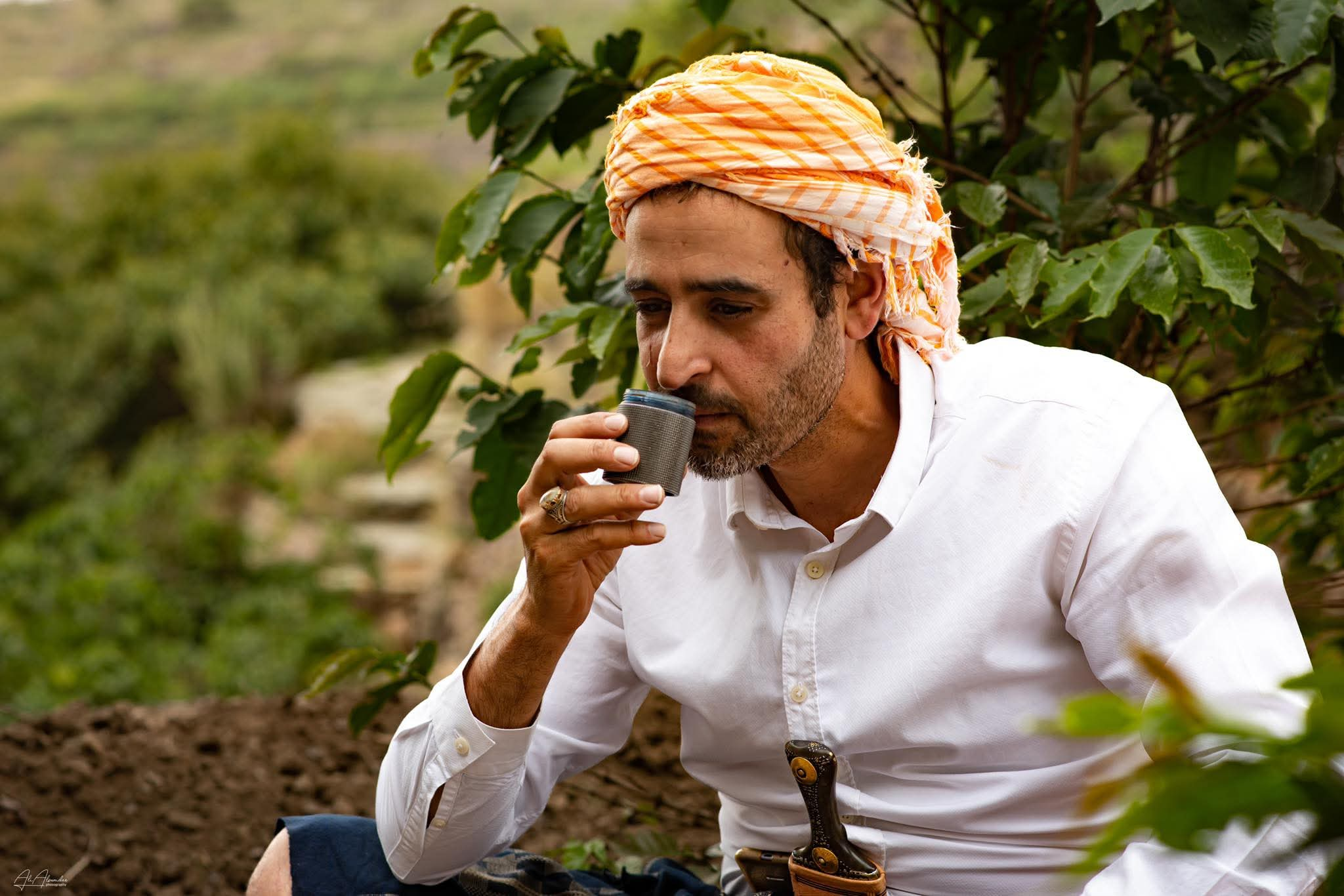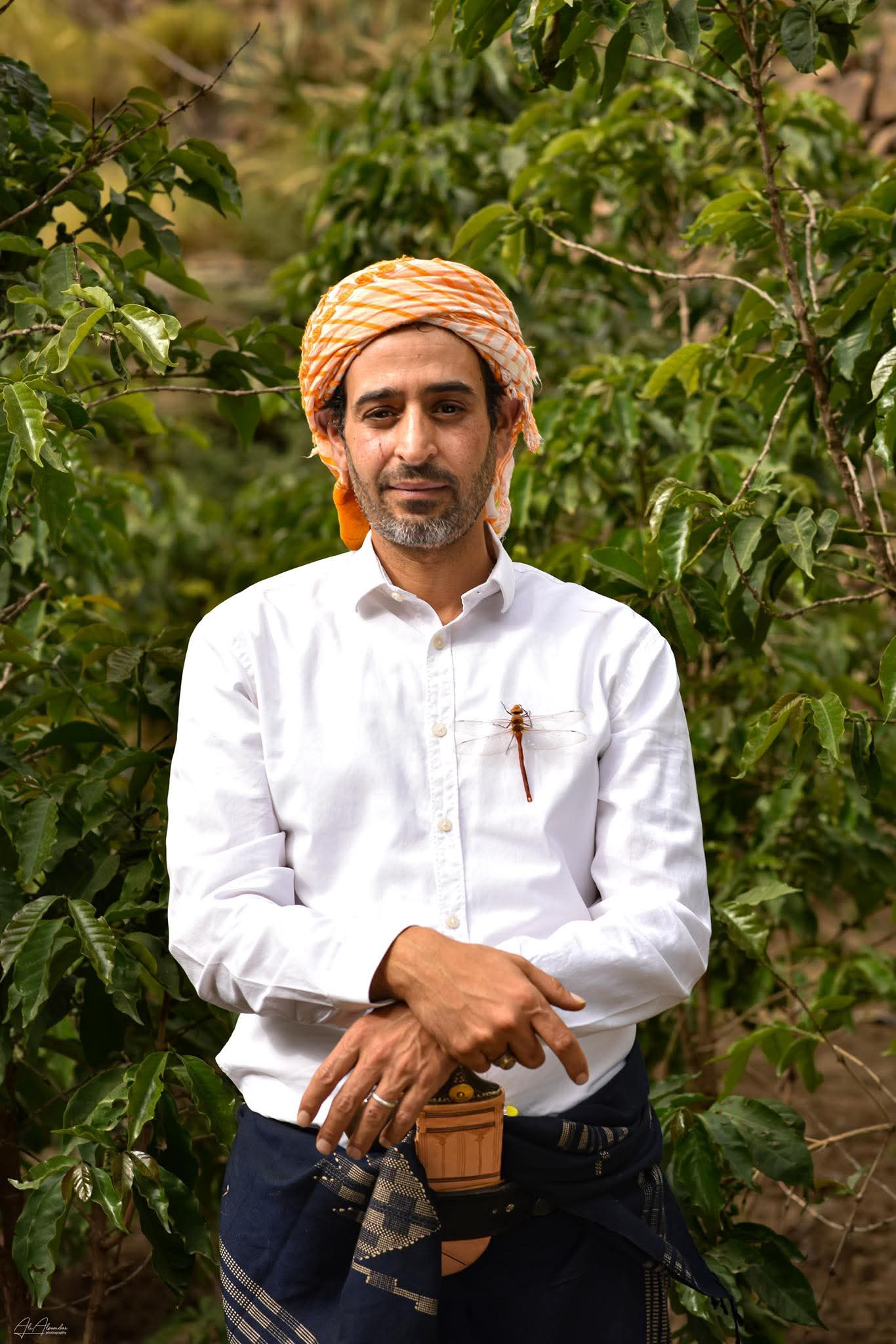
Abdul Latif Al-Jaradi: From a Childhood Dream to Reviving Yemeni Coffee on the Global Stage
In the historic streets of Old Sana’a, where the aroma of roasted coffee beans mingles with the early morning breeze, Abdul Latif Al-Jaradi grew up in an environment steeped in history and perseverance. His childhood was filled with tales of a thriving Yemen, bustling markets, and morning gatherings that were incomplete without a cup of authentic Yemeni coffee.
Unlike other children who dreamed of traditional office jobs, Abdul Latif was always searching for his identity in books and historical narratives. Coffee was an integral part of Yemen’s story, yet it had not received the recognition it deserved. Despite studying English literature at university, the call of Yemeni coffee was too strong to ignore, leading him to develop a deep passion for its history and unique characteristics that had made it one of Yemen’s most valuable exports.
Family Values
From a young age, Abdul Latif learned that hard work was the gateway to independence. His father—may he rest in peace—instilled these values in his children, rewarding them for completing daily tasks. This experience helped him realize that effort and perseverance were essential for success.
He regularly assisted his family in their daily business activities, viewing it as an opportunity to refine his skills and gain hands-on experience. Being surrounded by commerce, witnessing transactions firsthand, and understanding market dynamics all contributed to his economic awareness long before he embarked on his professional journey.
A Turning Point
In 2016, Abdul Latif delved deeper into the coffee industry, joining the SMEPS organization’s programs. Through these initiatives, he gained valuable insights into coffee cultivation, processing, and trade. This experience was a pivotal moment in his career, providing him with a more profound understanding of coffee quality and the importance of supporting Yemeni farmers to preserve this rich heritage.
In 2017, an unexpected event changed his course—he lost his job as a school employee. Rather than seeing it as a setback, he embraced it as an opportunity. He decided to fully dedicate himself to the coffee industry and founded “Mocha Root,” a name that would later become synonymous with premium Yemeni coffee exports.
With the enthusiasm of an adventurer, he gathered $3,500 and invested in 60 kilograms of the finest Yemeni coffee beans, sending them abroad with the help of his friend Dr. Nader, with whom he co-founded the first company specializing in Yemeni coffee exports.
However, the initial shipment did not sell as expected. This was a harsh realization—success in the coffee industry required more than just high-quality beans. Packaging, marketing, and international trade standards were just as crucial. Instead of letting this discourage him, he treated it as a learning experience, refining his approach to entering global markets.
Abdul Latif refused to give up. The following season, he secured his first customer in the United States. When he sent them a sample, the feedback was astonishing: “We have received many samples from Yemen, but yours is the best in terms of quality and moisture retention.” That was the moment he knew that persistence and patience were the true keys to success.
Determined to improve, he studied various processing and fermentation techniques and refined his roasting methods. His goal was not just to export coffee but to tell Yemen’s story through every cup brewed with his beans.
Yemeni Coffee: More Than Just a Commodity
Today, Abdul Latif sees his business as more than just a trade—it is a mission to restore Yemen’s rightful place in the global coffee industry. He recognizes that Yemen’s historic Mocha port was the gateway through which coffee was introduced to the world. Reviving this legacy is a responsibility he takes seriously.
To achieve this, he has built partnerships with local farmers, ensuring they receive the knowledge and resources needed to enhance their production while preserving traditional methods that give Yemeni coffee its unique flavor. He also established coffee tasting laboratories and participated in international auctions to present Yemeni coffee as a premium product capable of competing in global markets.
Bigger Dreams for the Future of Yemeni Coffee
But Abdul Latif’s aspirations go beyond coffee. He envisions contributing to sustainable development projects that restore Yemen’s vibrancy. Inspired by cities like Alexandria, he dreams of similar advancements in his homeland.
He understands that supporting Yemeni coffee is not just about production and export—it involves fostering a local coffee culture that appreciates its quality and heritage. To this end, he has organized training workshops for coffee enthusiasts and helped establish specialty coffee roasteries within Yemen, creating a vital link between farmers and international markets.
Final Words
“Success requires perseverance. Do not stop at the first obstacle, and do not fear failure—it is merely a stepping stone toward success. Keep striving and working hard because sincere efforts always bear fruit.” With these words, Abdul Latif concludes his story, knowing that his journey with coffee is far from over—it is just beginning.
Every time a cup of Yemeni coffee is poured anywhere in the world, it stands as a testament to a long journey of perseverance, led by individuals like Abdul Latif Al-Jaradi, who believe that coffee is more than just a beverage—it is an identity and a heritage that must be preserved and passed on to future generations.




